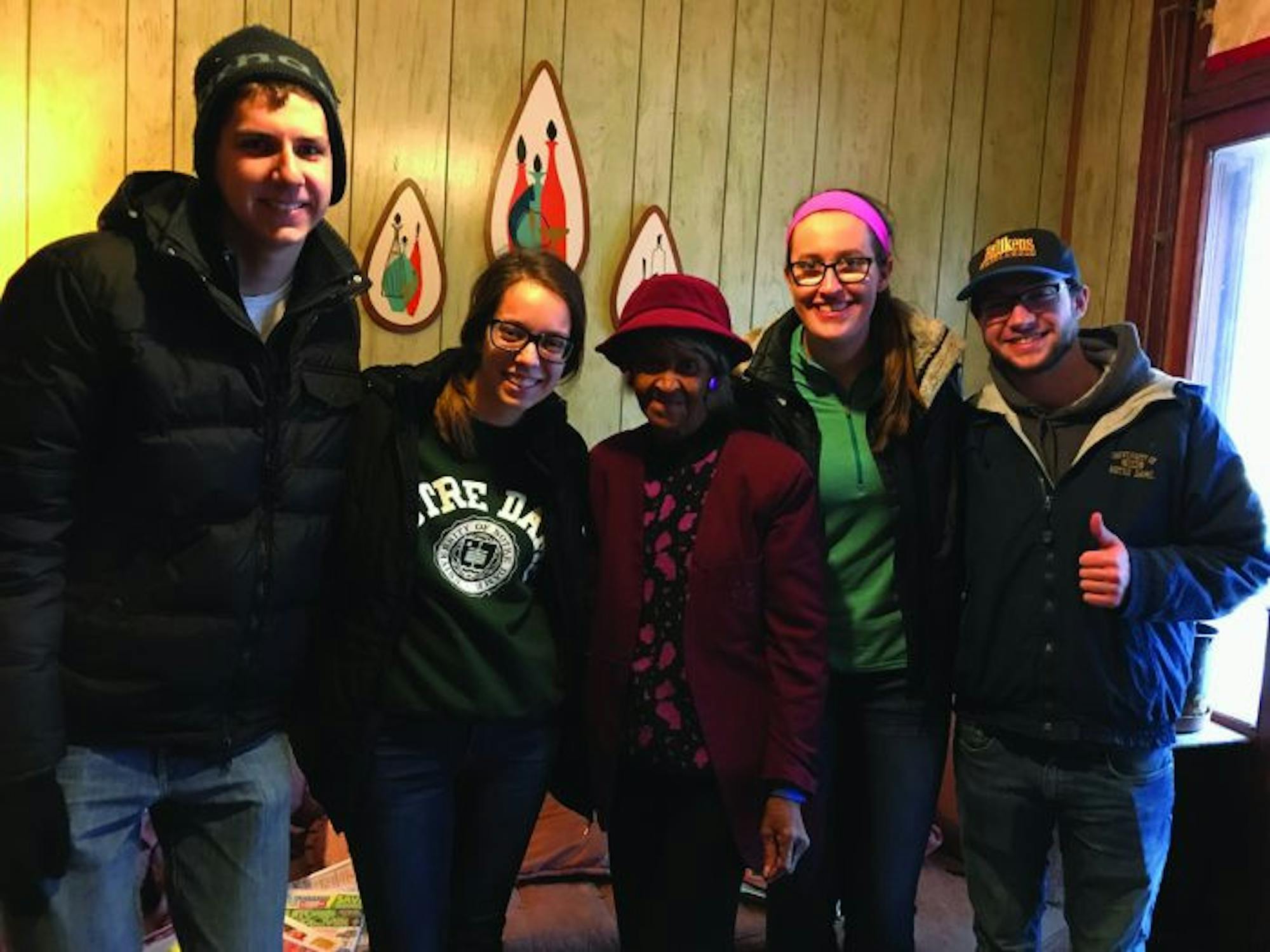Over winter break, many Notre Dame students participated in the Urban Plunge through the Center for Social Concerns (CSC). The Urban Plunge is a three-day program in which students immerse themselves in the challenges facing marginalized people in cities across the country. Most students participate in programs either in or near their hometowns.
Melissa Marley Bonnichsen, the CSC’s social concerns seminars director, described the Urban Plunge as a “101” for students.
“We usually have students that have either a good amount of service in high school or have had the opposite, maybe nothing,” Marley Bonnichsen said. “And they are looking to do something very positive over break or try out this program.”
The goals of the Urban Plunge are twofold, Marley Bonnichsen said. The first, she said, is to encourage students to engage with the challenges facing their local communities.
“The assumption is that either they are very familiar with services offered to people on the margins there, or this might be the first time they have considered what poverty looks like in their backyard,” Marley Bonnichsen said.
Marley Bonnichsen explained that the second objective aims to educate participants on the role the Church plays in combating poverty.
“How do faith based organizations, and-or non-faith based organizations that have that intentionality, how is that working? How are they responding? What does that look like on the ground?” she said.
The plunges are organized around cities, and Marley Bonnichsen said because engaging locally is a large emphasis, many programs are centered around places where there is a large population of Notre Dame students. Several of the plunges are closely associated with Notre Dame alumni clubs, while others are more centered on independent groups, she said. This winter, there were around 30 Urban Plunge programs offered. Cities with active Notre Dame Clubs tend to have the largest programs, Marley Bonnichsen said, including Chicago, Los Angeles and Cincinnati.
Many of the issues students examine relate to economic conditions, such as housing and homelessness. However, Marley Bonnichsen said, sometimes sites look at other issues that can affect economic conditions.
“The variance is wide. Last year in Atlanta, they looked at incarceration,” she said. “They not only talked about poverty, but in their immersion, they also ended up seeing what was going on at the local jail. We will also have food justice issues. One of the Boston sites looks at … access to food, what it means to have food deserts, etc.”
Urban Plunge also involves academic credit for the spring semester. Marley Bonnichsen said students participate in a seminar before they leave for break to prepare for their immersion and participate in several follow-up sessions when they return.
“Because students are coming from all over the place, but for many of them this might be a new thing, it’s really important that students don’t go into a situation thinking they know the answers or bring in a lot of criticism or judgement,” she said. “So we do some educating around the experience of immersion … and understanding what it means to have a connection to people.”
Ultimately, participants will spend approximately three days living in the community they are serving, sharing in its experiences and hardships.
Sophomore Cecilia Hall participated in a program in St. Louis over break. She and four other students spent time touring and working in The Ville, a historically African-American neighborhood in St. Louis, she said.
“Looking back, this Urban Plunge experience was very impactful for me,” Hall said in an email. “Growing up in a small town, I was sheltered from many of the problems that those who live in inner city neighborhoods like The Ville in St. Louis face on a daily basis.”
Hall particularly emphasized the importance of trying to understand the community’s problems while also stressing the connection to Catholic teaching.
“Rather than trying to come into an impoverished neighborhood like this one and fix all of its problems, it was important and very impactful for us to go and meet people to hear their stories and simply to be with them,” she said. “One of the themes of Catholic Social Teaching is ‘Option for the Poor and Vulnerable,’ and I believe that we were able to carry this out by simply being with the community for the short time that we were there in St. Louis.”
On the whole, Marley Bonnichsen said there are four major aims of the program: giving students a sense of the “reality” of the situation in their hometown, helping students reach a better understanding of the struggles of people suffering on the margins, introducing students to the people responding to such challenges and helping students develop into “active citizens.”
“The program reflects the essence of Notre Dame students. Notre Dame students deeply want to do great things for others. They want to serve,” Marley Bonnichsen said. “That’s the spirit we get the students into the program with. … We’ve seen a lot of great change in students launching from that one moment. It’s a great gift we are really privileged to offer.”













